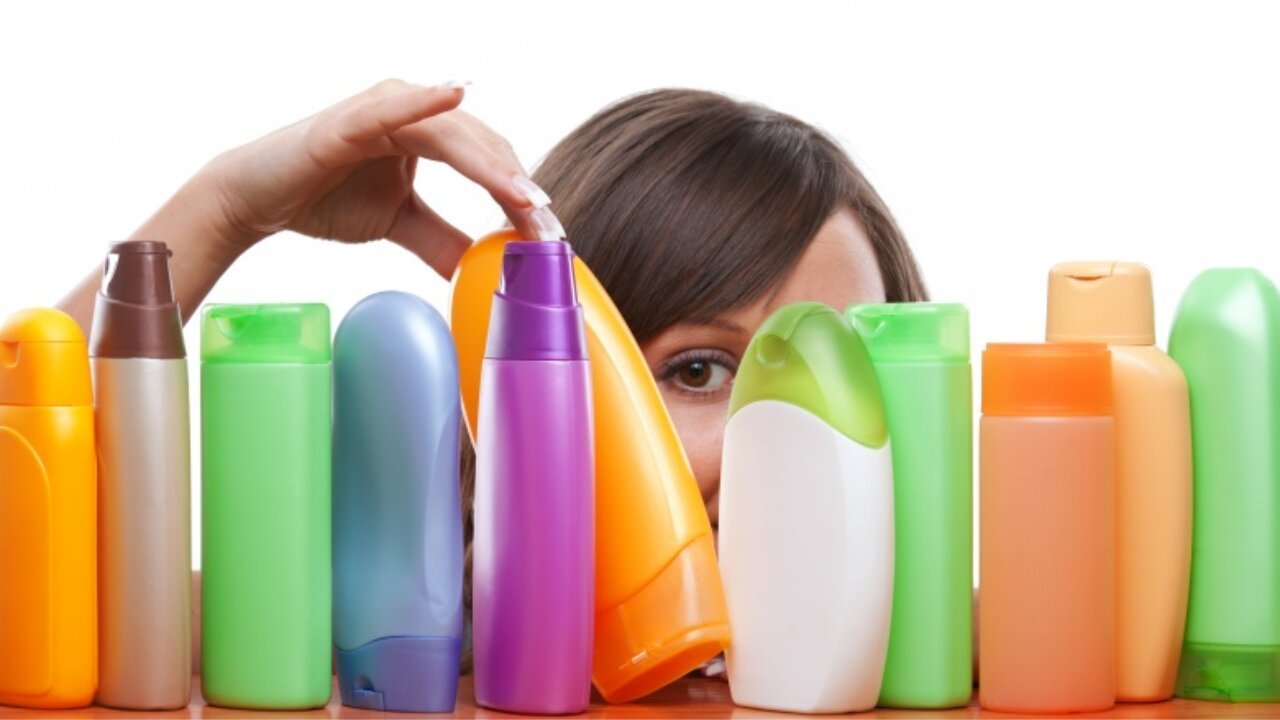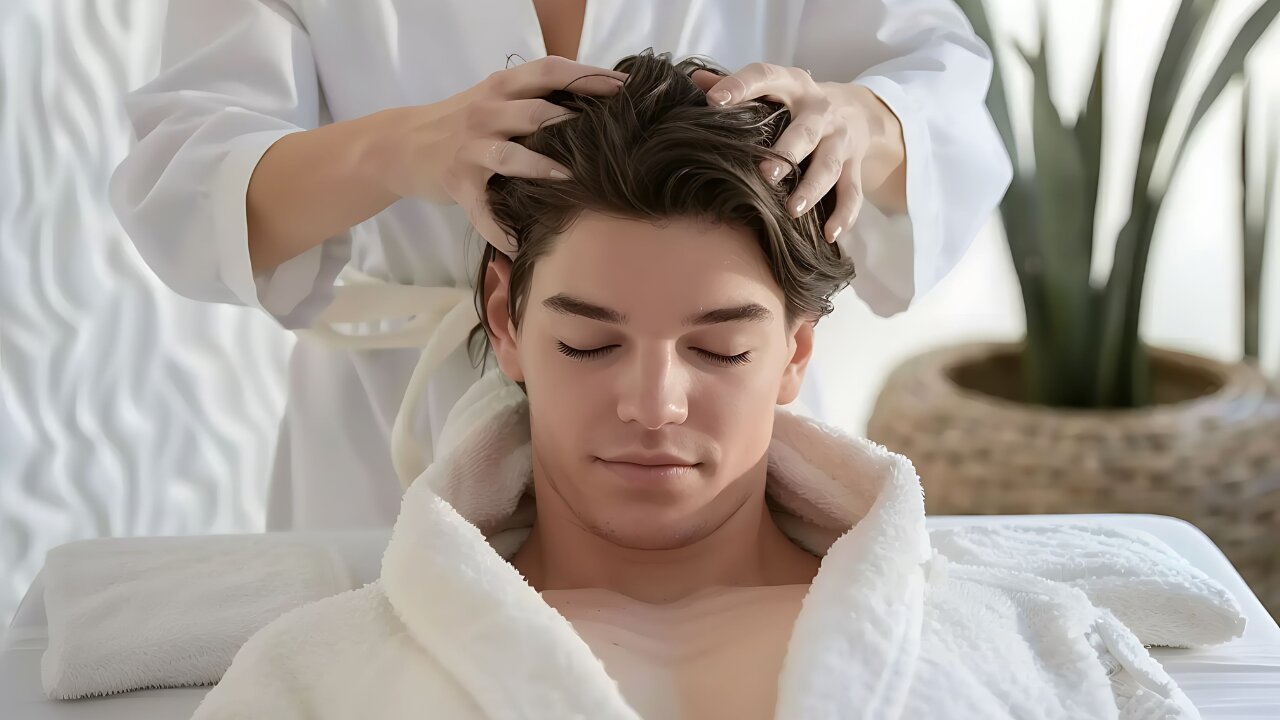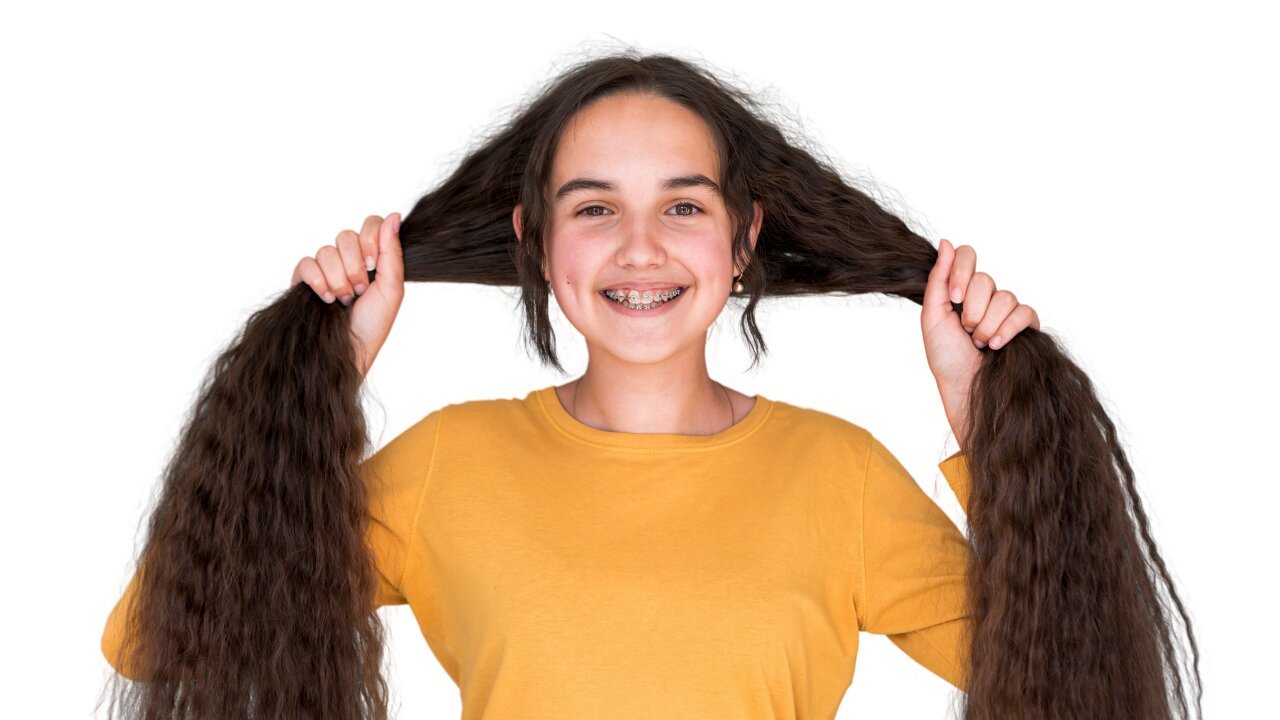Hello, beauty lovers! As a professional beautician, I am excited to share the Proven Tips to Grow Longer Hair Fast. The beauty world is always changing, bringing exciting new trends and techniques this year. Let’s dive into the top tips to help you look and feel your best!
Introduction
Do you dream of having long, luscious locks? You’re not alone! Many people aspire to make their hair grow longer, but it can be a journey full of twists and turns. Whether you’re trying to recover from a bad haircut or simply want to boost your hair’s length and health, understanding the right strategies is key. Let’s dive into the essentials of hair growth and discover practical tips that can help you achieve the hair of your dreams.
Understanding Hair Growth
The Science of Hair Growth
Hair growth is a fascinating process that starts deep within your hair follicles. Each follicle goes through a cycle consisting of three main phases: anagen, catagen, and telogen. The length and quality of your hair are largely determined by how these phases function.
Stages of Hair Growth
Anagen Phase
This is the active growth phase where the hair shaft is formed. It can last from 2 to 6 years, depending on genetic factors.
Catagen Phase
A short transitional phase that lasts about 2 to 3 weeks. Hair stops growing and falls out of the follicle.
Telogen Phase
The resting phase, which lasts around 2 to 4 months. Hair falls out at the end of this phase, and new hair begins to grow from the same follicle.
Factors Affecting Hair Growth
Genetics and Hair Growth
Your genetics play a crucial role in determining your hair growth rate and length. While you can’t change your genetic makeup, understanding it can help you set realistic expectations and tailor your hair care routine accordingly.
Diet and Nutrition
What you eat significantly impacts your hair health. A balanced diet rich in vitamins and minerals can promote stronger, longer hair. We’ll dive into specific nutrients later.
Hormonal Influences
Hormones like estrogen and testosterone can affect hair growth. For instance, changes in hormone levels during pregnancy or menopause can impact hair thickness and growth patterns.
Environmental Factors
Pollution, sun exposure, and harsh weather conditions can damage your hair and hinder growth. Protecting your hair from these elements is crucial for maintaining its health and length.
Essential Hair Care Tips
Choosing the Right Shampoo
Using a gentle, sulfate-free shampoo can help maintain your hair’s natural oils, which are essential for growth. Avoid products with harsh chemicals that can strip your hair and scalp of moisture.

Importance of Conditioner
A good conditioner helps to keep your hair moisturized and reduces breakage. Look for conditioners with ingredients like keratin and natural oils that nourish and strengthen your hair.
Regular Trimming
Trimming your hair might seem counterintuitive when trying to grow it longer, but it’s essential for preventing split ends and breakage.
Benefits of Trimming
- Removes damaged ends
- Prevents breakage
- Promotes healthier growth
How Often to Trim
- Trim your hair every 8 to 12 weeks to maintain healthy ends.
Diet for Healthy Hair Growth
Essential Vitamins and Minerals
- Vitamin A
- Promotes scalp health by producing sebum.
- Found in carrots, sweet potatoes, and spinach.
- Biotin (Vitamin B7)
- Strengthens hair and stimulates growth.
- Found in eggs, almonds, and avocados.
- Vitamin E
- Supports blood circulation and hair follicle health.
- Found in nuts, seeds, and leafy greens.
Foods That Promote Hair Growth
- Protein-Rich Foods
- Hair is made of keratin, a type of protein, so consuming enough protein is essential.
- Include lean meats, fish, beans, and lentils in your diet.
- Iron and Zinc Sources
- Iron helps red blood cells carry oxygen to your hair follicles, while zinc supports hair tissue growth and repair.
- Include foods like spinach, red meat, and pumpkin seeds.
Hydration and Hair Health
Drinking plenty of water helps maintain a healthy scalp and supports overall hair health. Aim for at least 8 glasses of water a day to keep your hair hydrated and strong.
Also Read: Transform Your Skin: Banish Acne Scars
Natural Remedies for Hair Growth
Benefits of Coconut Oil
Coconut oil is a miracle worker for hair growth. It penetrates deep into the hair shaft, reducing protein loss and preventing breakage.
Aloe Vera for Scalp Health
Aloe Vera has soothing properties that can reduce scalp inflammation and promote healthy hair growth. Put aloe Vera gel on your scalp and leave it for 30 minutes before washing it off.
Onion Juice for Hair Strength
Onion juice is rich in sulfur, which helps strengthen hair and improve blood circulation to the scalp. Apply onion juice to your scalp, leave it on for 15 minutes, and then rinse thoroughly.

The Magic of Castor Oil
Castor oil is known for its high ricinoleic acid content, which improves scalp health and boosts hair growth. Massage castor oil into your scalp and leave it on overnight for the best results.
Hair Growth Myths Debunked
Trimming Doesn’t Make Hair Grow Faster
While regular trims keep your hair healthy by removing split ends, they don’t actually speed up the growth process. Hair growth occurs from the scalp, not the ends.
Stress and Hair Growth
Chronic stress can lead to hair loss by pushing hair follicles into the resting phase prematurely. Managing stress through relaxation techniques can help maintain hair growth.
The Truth About Hair Growth Supplements
While some supplements can support hair health, they are not a magic solution for everyone. It’s best to get nutrients from a balanced diet and consult a healthcare professional before starting any supplement regimen.
Lifestyle Changes for Longer Hair
Reducing Stress
Lowering your stress levels can positively impact your hair health. Practice relaxation techniques like yoga, meditation, or simply spending time doing what you love.
Getting Enough Sleep
Getting enough sleep is really important for your health and your hair growth. Try to sleep 7-9 hours each night so your body can fix itself and grow well.
Regular Exercise
Exercise increases blood flow, which delivers essential nutrients to your scalp. Engage in regular physical activity to boost your hair growth and overall health.
Avoiding Hair Damage
Heat Styling Tools
Excessive use of heat styling tools like straighteners and curling irons can cause damage and breakage. Use these tools only sometimes and always use a product that protects hair from heat.
Chemical Treatments
Chemical treatments like perming, coloring, and relaxing can weaken your hair. If you must use them, ensure you follow up with intensive conditioning treatments to maintain hair health.
Tight Hairstyles
Wearing tight hairstyles like ponytails and braids can put stress on your hair and lead to breakage. Choose hairstyles that are not tight to avoid causing damage to your hair.
Choosing the Right Hair Products
Understanding Product Labels
Reading and understanding product labels can help you choose the best products for your hair type. Look for ingredients that promote hydration and avoid those that can cause dryness and damage.
Ingredients to Avoid
Avoid hair products containing sulfates, parabens, and alcohols, as they can strip your hair of natural oils and lead to dryness and breakage.
Recommended Products for Hair Growth
Look for shampoos, conditioners, and serums that contain ingredients like biotin, caffeine, and essential oils known to promote hair growth.
Popular Hair Growth Treatments
Minoxidil: How It Works
Minoxidil is a topical treatment that helps to stimulate hair follicles and promote growth. It’s commonly used for treating hair thinning and loss.
Laser Therapy for Hair Growth
Laser therapy uses low-level lasers to stimulate hair follicles and encourage growth. It’s a treatment that doesn’t involve surgery and is for people who have thinning hair.
Hair Growth Shampoos and Serums
There are various shampoos and serums on the market that claim to promote hair growth. Look for products with proven ingredients like biotin, niacin, and essential oils.
Professional Treatments for Hair Growth
Scalp Massages
Scalp massages can increase blood circulation and stimulate hair follicles, promoting healthier growth. Consider getting a professional scalp massage or doing it yourself at home.

Micro-needling for Hair Growth
Micro-needling involves using tiny needles to create micro-injuries on the scalp, which can stimulate hair growth and improve scalp health.
PRP (Platelet-Rich Plasma) Therapy
PRP therapy involves injecting your own platelet-rich plasma into your scalp to encourage hair growth. It’s a more advanced treatment option with promising results for hair loss.
Long-Term Hair Care Strategies
Developing a Hair Care Routine
Consistency is key to maintaining healthy hair. Develop a routine that includes regular washing, conditioning, and treatments tailored to your hair type and needs.
Seasonal Hair Care Tips
Different seasons can affect your hair differently. For instance, winter can cause dryness, while summer might lead to more oil buildup. Adjust your hair care routine accordingly.
Monitoring Hair Health
Keep an eye on your hair’s condition and growth. If you notice significant changes or issues, consult a professional to address any potential underlying problems.
Conclusion
Growing longer, healthier hair takes time, patience, and the right strategies. By understanding the factors that affect hair growth and implementing proven tips and remedies, you can achieve the hair of your dreams. Remember, consistency and proper care are crucial to your hair growth journey. Keep nurturing your hair, and the results will follow!
FAQs
1. How long does it take for hair to grow significantly longer?
On average, hair grows about half an inch per month, so noticeable length can take several months to a year, depending on your growth rate and hair care practices.
2. Can stress really cause hair loss?
Yes, chronic stress can push hair follicles into the resting phase prematurely, leading to increased hair shedding and thinning.
3. Are hair growth supplements effective?
While some supplements can support hair health, they should complement a balanced diet. It’s a good idea to talk to a doctor before you begin taking any new supplements.
4. What are the best hairstyles to promote hair growth?
Looser hairstyles that reduce tension on the hair and scalp, like loose braids or ponytails, can help prevent breakage and promote growth.
5. Is it possible to regrow hair on a bald scalp?
In some cases, treatments like minoxidil, PRP therapy, and hair transplants can help regrow hair on a bald scalp, depending on the underlying cause of hair loss.
6. How can I grow my hair longer fast?
To grow your hair longer fast, eat a healthy diet with plenty of protein, avoid heat styling and harsh treatments, and massage your scalp regularly to improve blood flow. Cut your hair often to stop split ends. Be patient and gentle with your hair.
7. How to get long hair in 7 days?
To get long hair in 7 days, eat healthy foods like eggs and nuts, massage your scalp with warm oil daily, and avoid heat styling. Drink lots of water and use gentle, natural shampoos and conditioners. Patience and care are key!
8. What causes hair to grow longer?
Hair grows longer primarily due to the activity of hair follicles, which produce hair strands. Factors such as genetics, age, and overall health influence hair growth rate. Good nutrition and proper care can also support healthier and potentially faster hair growth.
9. How can I grow my hair long and naturally?
To grow your hair long naturally, avoid frequent heat styling and harsh chemicals. Eat healthy foods with lots of vitamins and proteins. Also, trim your hair often to stop split ends and help it grow strong and healthy.
Feel Free to visit other website: https://medium.com/

I found this very easy to follow.